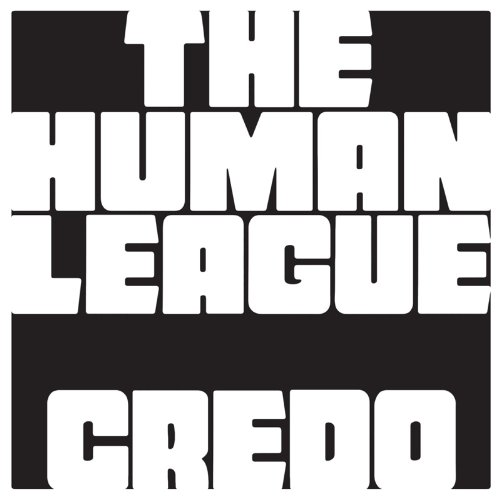
The Human League
Credo
Release Date: Sep 13, 2011
Genre(s): Pop/Rock, Alternative/Indie Rock, New Wave/Post-Punk Revival, Punk/New Wave, Synth Pop
Record label: Ais / Wall of Sound
Music Critic Score
How the Music Critic Score works
Album Review: Credo by The Human League
Average, Based on 7 Critics
Based on rating 3.5/5
Now here’s a thing. A band from the ’80s seeking present-day salvation from the ’90s. But Wall Of Sound and The All Seeing I’s joint bid to rescue [a]The Human League[/a] from Here And Now Tour obscurity is triumphant, chiefly because (save the odd production respray and re-upholstered vocal), they’ve let the Sheffield trio get on with exactly what they do best.Which is to epitomise the most robotic, glamorous reaches of pop alongside its most grubby and provincial.
Based on rating 6/10
Thirty years may have passed since their landmark album Dare! helped to define the early-'80s electro scene, but the Human League's signature sound remains just as relevant today thanks to synth pop starlets like La Roux, Ladyhawke, and in particular, Little Boots, who collaborated with lead vocalist Phil Oakey on her 2009 debut, Hands. For Credo, their their first studio album since 2001's Secrets, the Sheffield trio don't require much of a makeover in order to compete with their younger upstarts. Produced by lounge-pop revivalists I Monster (whose Dean Honer also worked with Oakey on the All Seeing I's Top 30 single "First Man in Space"), there are admittedly a few modern concessions, such as the heavy use of Auto-Tune on the robotic disco of opening track "Never Let Me Go," the nods to acid house on "Electric Shock," and the drum'n'bass leanings of the industrial closer "When the Stars Start to Shine.
Based on rating 3/5
Almost the first sound on the Human League's first album in a decade is the voice of Susan Sulley, AutoTuned to robotic numbness. Hearing a band who once personified futurism being reduced to following last year's sonic fad isn't edifying. Luckily, it turns out to be an aberration, and, for the most part, Credo sounds like nobody but the Human League: electronics gurgle and whirr, and some fairly memorable melodies surge and flow.
Based on rating C-
When they dropped the brilliant, decade-defining pop slab Dare, way back in 1981, David Bowie praised The Human League as the “sound of the future.” Let’s fast-forward 30 years: It’s 2011, and the future has long since caught up with Phil Oakey and his merry crew of synth-poppers. Three decades’ worth of imitators have co-opted their formula and, in many cases, even developed it further. What was once the sound of the future now sounds very dated, frozen in an age that some readers have only experienced through VH1 Classic video marathons.
Based on rating 2/5
THE HUMAN LEAGUE play the Guvernment September 18. See listing Rating: NN Legend has it Philip Oakey originally hated the Human League's biggest hit, Don't You Want Me, and it was only put on the album and released as a single because the label insisted. Listening to the pioneering synth-pop band's ninth studio album, you can't help but wish there were still some major label hard-asses willing to strong-arm the band into putting their best foot forward instead of letting Oakey indulge his misplaced art-rock pretensions.
Based on rating 3/10
Thirty-two years ago, the Human League released a record called The Dignity of Labour. While the title was probably more a reflection of the members’ socialist leanings, it makes a fitting motto for the band’s existence over the past three decades. They’ve run the gauntlet to which most long-running acts are subjected. The Greatest Hits tours and nostalgia package tours.
Opinion: Fairly Good
Better than it has any right to be, but far from an essential addition to their catalogue. Tom Hocknell 2011 With OMD’s re-emergence and renewed interest in Sheffield compatriots Heaven 17, the timing seems right for a new album from The Human League. Lead singer Philip Oakey’s been relatively busy, dueting on both Pet Shop Boys’ This Used to Be the Future and with Little Boots in 2009.

